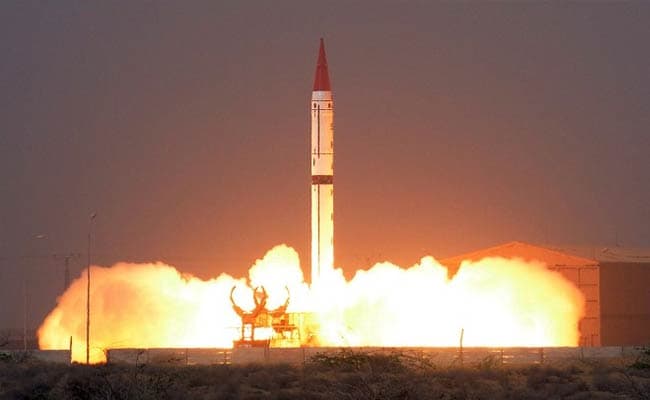
Despite facing six rounds of US sanctions over the past three years, experts argue that Pakistan’s missile program remains largely unaffected. These sanctions, primarily aimed at curbing missile development, have done little to slow Pakistan’s progress.
New US Sanctions Target Pakistan and China
On Thursday, the US government announced another round of sanctions, this time targeting a Pakistani company and several Chinese entities and individuals. The US claims these companies are supplying equipment and technology to Pakistan’s ballistic missile program.
This marks the sixth round of sanctions since November 2021, a move designed to freeze US-based assets of the named companies and individuals, and prohibit US citizens from conducting business with them.
Focus on Missile Technology
The sanctions name Chinese firms such as Hubei Huachangda Intelligent Equipment Co and Xi’an Longde Technology Development Co, as well as Pakistan’s Innovative Equipment. The US alleges that these entities have violated missile technology restrictions by transferring critical equipment to Pakistan’s National Development Complex (NDC), which is believed to be involved in the development of long-range ballistic missiles.
The US State Department emphasized that it will continue to act against the proliferation of weapons of mass destruction (WMD) wherever it occurs, underlining the focus on curbing missile development.
Pakistan and China Respond
China has firmly opposed these sanctions, stating that they are unilateral and have no basis in international law. Pakistan’s government has yet to comment on this latest round of sanctions.
In response to previous sanctions, Pakistan’s foreign ministry denied the accusations, arguing that the sanctions were politically motivated and lacked evidence. Pakistan’s spokesperson, Mumtaz Zahra Baloch, pointed out the increasing cooperation between the US and India in defense matters, suggesting double standards in the application of non-proliferation controls.
Pakistan’s Missile Development Continues Unhindered
Despite the sanctions, Pakistan’s missile program continues to advance. Experts, including Tughral Yamin from the Institute of Policy Studies Islamabad (IPSI), argue that Pakistan’s missile program is now too advanced for the sanctions to have any meaningful impact. Yamin suggests that the sanctions may be more of a pressure tactic on China rather than a genuine attempt to halt Pakistan’s missile development.
Pakistan has been developing a robust missile program for decades, including nuclear warheads. It follows guidelines from the Missile Technology Control Regime (MTCR) even though it is not a member. The program is largely focused on maintaining deterrence against India.
US Concerns Over Pakistan’s Missile Range
The US has long been concerned about Pakistan’s missile development, dating back to the early 1990s. However, these concerns intensified during the Obama administration when US officials urged Pakistan to limit the range of its missiles.
Pakistan’s longest-range missile, the Shaheen-III, has a range of 2,750 kilometers and can carry both conventional and nuclear warheads. Despite the US sanctions, Pakistan has remained transparent in its missile policy, which focuses on maintaining deterrence against India.
Conclusion: Sanctions Unlikely to Halt Progress
While the US continues to impose sanctions targeting Pakistan’s missile program, these measures are unlikely to slow Pakistan’s progress. The missile program is well-established, and Pakistan remains committed to maintaining a strong deterrence policy, particularly against India. Despite the sanctions, experts believe Pakistan’s missile development will continue at its current pace, with China’s support playing a crucial role in this advancement.


